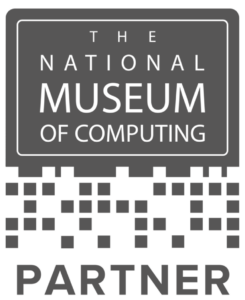Do I need to tell you again? That was a favourite phrase of my mother’s and a sure clue I had forgotten to do something, usually something she’d already told me about more than once. It meant I was in some degree of trouble.
Now – in a professional capacity – I find myself asking, rhetorically at least – that same question. I’ve been presenting at itSMF events for some time now, since the Brighton conference in 1993, and I reckon I have clocked up 84 annual conferences in 28 countries. Take out some of the really boring ones about ITIL itself, especially what V3 will and did contain, and most of the rest shared a common theme: “you need to understand the people you are doing all this IT service management (ITSM) for – your customers”.
After 20+ years banging on about this, you might think I should shut up – even I think that maybe I should shut up. But instead, at the upcoming itSMF UK conference (ITSM17) in Manchester in a few weeks I’ll be at it again. Maybe for the last time, but that seemed a good reason for a small retrospective.
We all see the same world, but in different ways
The real reason for looking back though is that too many organisations still haven’t ‘got it’. In the best tradition of the BBC therefore, my purportedly new talk will contain a few healthy chunks of repeats. Specifically, I plan to re-run elements from talks I delivered for itSMF: UK, US, and others, in 2004 and 2009. The main theme is “Understanding the Business Perspective” – that was the 2004 title, and it uses iced buns, childlike perceptions, dolphins, and washing machines to make a point; along with quotes from great literature (Thomas the Tank Engine) and the wisdom of John Lennon.
It won’t be all doom, gloom, and the cynical rantings of old age though, (some of course, but not all). I think there’s been real progress in the 15 years since I first wrote and delivered the content. We’ve seen business relationship management (BRM) become high profile and for many it’s now a must-have concept within their organisation. What we don’t universally see yet though is how BRM can be a universal bottleneck to every aspect of successful ITSM if it isn’t done effectively.
BRM: the new bottleneck?
When I deliver ITIL Foundation courses I lose track of the number of times we say “And of course if BRM isn’t working properly, you’ll not be able to get this right, because you won’t know what you’re aiming at”. I guess the flow we need goes something like this:
- We need to understand our customers and relate to their desires and concerns. For that we need to talk their language, share their concerns, and empathise with their attitudes
- That knowledge has to be translated into terms our service provider folk can understand. In terms of what success would look like – when it’s ‘done’ to borrow some Agile terminology
- Then we have to actually do it.
Without those first two steps though, we often have no alternative but to fall back on to the traditional IT behaviour: we put all our efforts into getting better at what we’re doing now. That enthusiasm and determination to improve is good, positive stuff. But if we can combine that with some understanding of how our customers think and what they actually need … well then we can start actually being useful.
And shouldn’t we always have been useful?
And that’s the other talk I will be sampling, as delivered to itSMF UK and USA in 2009: “Is your service management useful?”
When I wrote that ’useful’ talk and started delivering, there was no question that the answer was always going to be ‘Not really’. Has that changed? Are we now working as part of the business, attuned to their needs and desires? Or have many CIOs fallen back on protecting their empire and gone for keeping the IT unit at arms’ length rather than feeling part of the bigger organisation with one set of shared metrics? Maybe there’s one test to help you answer that question:
If your customers and users start using their own software (spreadsheets and the like) to do critical business work, do you shout ‘Shadow IT’ and complain? Or do you realise that they are doing it because they need more than you are providing, and then go sit don with them and work out what they need and how you can help them?, If you just see it as Shadow IT, I think you are missing the point I’ve been trying to make for 20 years.
Personally, I think there’s still enough mileage on those old ideas to warrant bringing them out for another run in Manchester. Fancy a trip backwards in ITSM to look forwards? I hope you’ll join me at ITSM17.

Ivor Macfarlane
Ivor Macfarlance has been active in the delivery and management of services since 1976 and with IT Service Management since 1984, initially as IT Manager within UK Civil Service and subsequently as author, consultant and trainer. Ivor is actively involved in the development process for all elements of the ITIL/BSI best practice in IT Service Management, he was an author for ITIL V1, V2 and V3 and for BS15000 (the standard that was fast tracked to become ISO/IEC20000).


